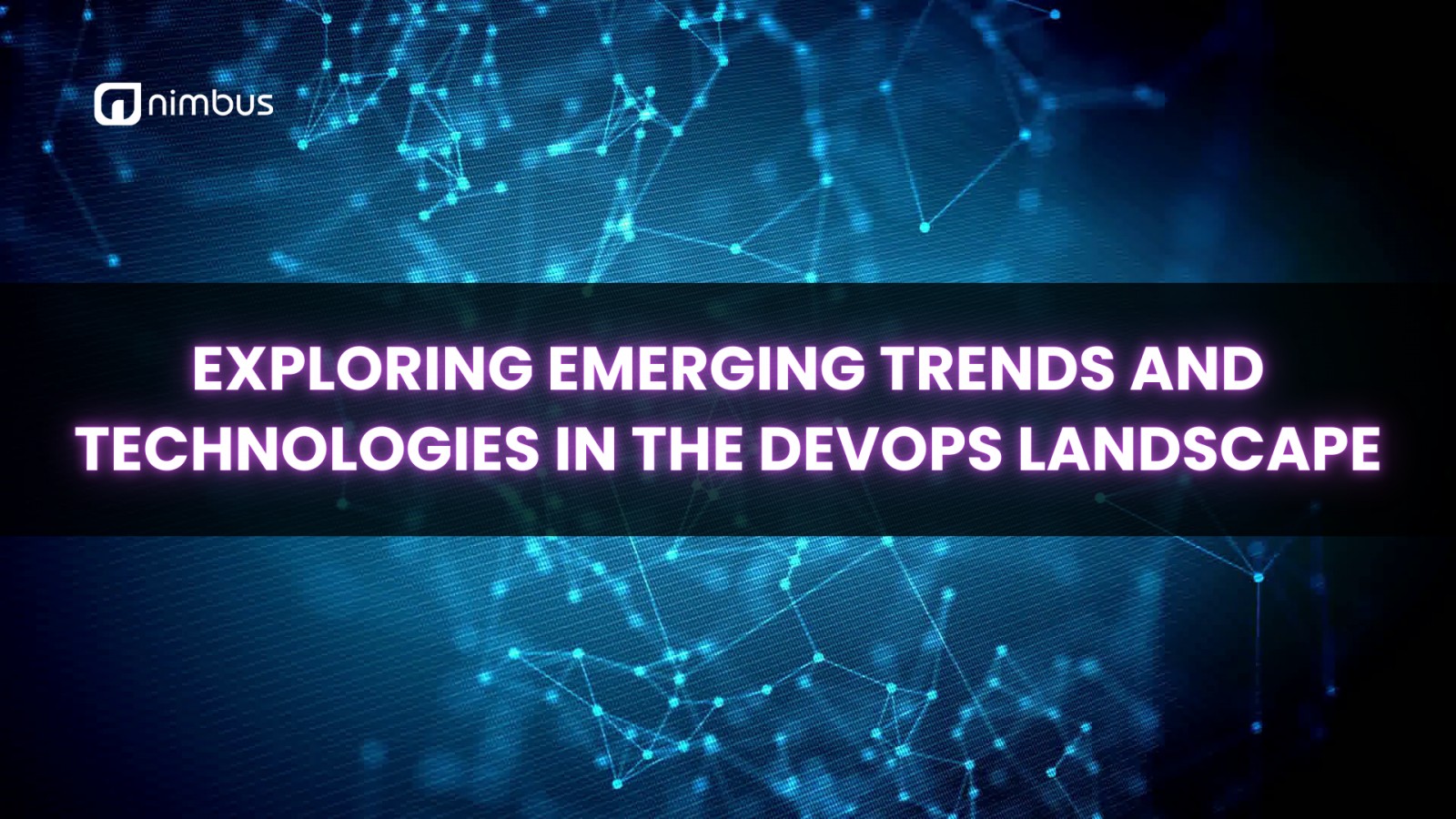As companies strive to stay competitive, understanding and leveraging the latest trends and technologies in DevOps becomes crucial. In this article, we will explore some of the emerging trends and technologies shaping the DevOps landscape and how Nimbus, a leading IT staffing company, can help organizations navigate these changes effectively.
1. Infrastructure as Code (IaC)
Infrastructure as Code (IaC) is revolutionizing the way infrastructure is managed. By using code to provision and manage infrastructure, teams can achieve greater consistency, repeatability, and scalability. Tools like Terraform and AWS CloudFormation enable teams to define infrastructure in declarative configuration files, which can be versioned and managed just like application code.
Why It Matters: IaC reduces human error, enhances collaboration, and speeds up the provisioning process. As infrastructure becomes more complex, IaC provides a reliable way to manage and automate deployments, ensuring environments are consistent across development, testing, and production.
2. DevSecOps
Security is becoming an integral part of the DevOps lifecycle, leading to the rise of DevSecOps. This approach integrates security practices into every stage of the development process, from initial design through to deployment and beyond. By embedding security into the CI/CD pipeline, teams can identify and address vulnerabilities early, reducing the risk of security breaches.
Why It Matters: With increasing cyber threats, integrating security into DevOps processes ensures that security is not an afterthought but a continuous, proactive effort. Tools like Snyk and Aqua Security are gaining traction for their ability to automate security checks within DevOps workflows.
3. Microservices and Containerization
Microservices architecture and containerization have become foundational to modern application development. By breaking applications into smaller, independent services, teams can develop, deploy, and scale components independently. Docker and Kubernetes have emerged as leading tools for containerization and orchestration, respectively.
Why It Matters: Microservices and containers enable greater flexibility, scalability, and resilience. They allow for faster iterations and more efficient use of resources, aligning well with the goals of DevOps to improve collaboration and accelerate delivery.
4. Serverless Computing
Serverless computing is transforming how applications are developed and deployed by abstracting away infrastructure management. With serverless platforms like AWS Lambda, Azure Functions, and Google Cloud Functions, developers can focus solely on writing code, while the platform handles scaling, patching, and administration.
Why It Matters: Serverless computing reduces operational overhead and costs, enabling teams to innovate faster. It allows organizations to pay only for the compute resources they use, making it a cost-effective solution for many applications.
5. AI and Machine Learning in DevOps
Artificial Intelligence (AI) and Machine Learning (ML) are starting to play a significant role in DevOps. These technologies can analyze vast amounts of data to identify patterns, predict issues, and optimize processes. AI-driven tools can enhance monitoring, incident management, and even code quality assessment.
Why It Matters: AI and ML can improve decision-making and efficiency within DevOps processes. For example, AI can predict potential system failures, allowing teams to address issues proactively before they impact users.
6. Continuous Integration/Continuous Deployment (CI/CD)
CI/CD remains a cornerstone of DevOps, but the methodologies and tools are continually evolving. Modern CI/CD pipelines are becoming more sophisticated, incorporating automated testing, security checks, and deployment strategies like blue-green deployments and canary releases.
Why It Matters: Efficient CI/CD pipelines enable faster, more reliable software releases. They reduce the time between code changes and deployment, allowing organizations to respond quickly to market demands and user feedback.
How Nimbus Can Help
At Nimbus, we understand that staying ahead of the curve in the rapidly changing DevOps landscape requires not only the right tools but also the right talent. As a premier IT staffing company, we specialize in providing highly skilled DevOps professionals who are adept at leveraging the latest trends and technologies.
Our Services:
Talent Acquisition: We connect organizations with top-tier DevOps engineers, cloud architects, and security specialists who can drive digital transformation initiatives.
Custom Solutions: Our team works closely with clients to understand their unique needs and provides tailored staffing solutions that align with their strategic goals.
Continuous Support: We offer ongoing support and training to ensure that our clients’ teams stay updated with the latest industry trends and best practices.
Flexible Engagement Models: Whether you need full-time employees, contractors, or a project-based team, we provide flexible staffing solutions to meet your requirements.
The DevOps landscape is continuously evolving, with new trends and technologies emerging to meet the demands of modern software development. By embracing innovations like Infrastructure as Code, DevSecOps, microservices, serverless computing, AI/ML, and advanced CI/CD pipelines, organizations can enhance their agility, security, and efficiency.
At Nimbus, we are committed to helping businesses navigate these changes by providing the expertise and support needed to succeed. Our dedicated team of DevOps professionals is ready to assist you in leveraging these trends to drive your organization forward.
Contact Nimbus today to learn more about how we can support your DevOps initiatives and help you stay ahead in this dynamic field.
